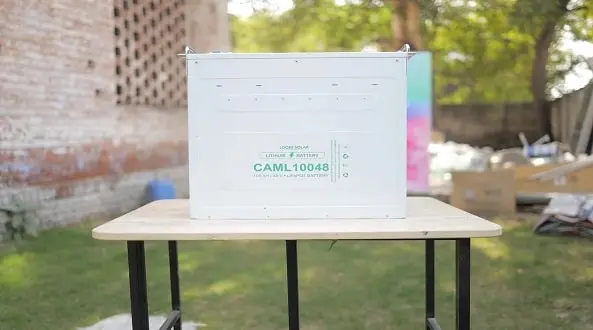Energy storage saves or stores electrical energy for later use. It helps keep our renewable energy sources, like solar and wind, steady, makes sure the power grid works well, and gives us backup electricity when there’s a problem. These technologies include lithium-ion batteries, lead-acid batteries, flow batteries, hybrid batteries, and saltwater batteries. Each of them has unique characteristics suited to specific applications and needs.
What is energy storage?
It stores the energy in electrical form from solar panels, generators etc. And the stored energy we can use in emergency situations like power cut. It also helps us in keeping our energy sources renewable. Also balances the supply and demand and support renewable energy integration.

Types of batteries:
Lead-acid Batteries: Lead acids are a traditional type of battery. There are two types of batteries in it. Flood lead acid battery and sealed lead acid battery. These batteries are affordable but have shorter life spans.
Lithium-ion Batteries: Lithium-ion batteries are known for their longer cycle life, high energy density, and stable performance. These batteries are popular for energy storage because of their reliability and safety features.
Flow batteries: Flow batteries include vanadium redox flow batteries. These are known for their scalability and longer lifecycles. Flow batteries are mostly used in large-scale solar energy storage systems.
Hybrid Batteries: Hybrid batteries combine different technologies to optimize performance and cost-effectiveness. They offer a balanced solution for energy storage needs. Their aim is to deliver a longer lifespan and enhanced overall performance in diverse applications.
Saltwater Batteries: These are non-toxic, environmentally friendly, and considered and are safer than some other battery types. While they have lower energy density, they are suitable for certain applications, offering a sustainable energy storage option.
Conclusion: Energy storage is essential for storing electricity from renewable sources like solar. And the popular sources for storing energy is lithium battery. The most suitable battery for solar energy storage will depend on your specific requirements like capacity, cycle life, efficiency, and any maintenance requirements. So it’s essential to consult with a solar energy professional to make an informed decision.
Santosh Kumar is a Professional SEO and Blogger, With the help of this blog he is trying to share top 10 lists, facts, entertainment news from India and all around the world.
